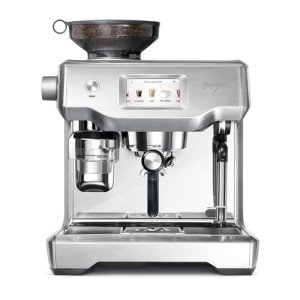Energy-Efficient Espresso Machines: A Comprehensive Guide
On the planet of coffee lovers, espresso machines are typically considered vital appliances for developing rich, fragrant coffee. However, the energy usage connected with these machines can cause increased utility expenses and ecological issues. As customers become more eco-conscious, energy-efficient espresso machines have actually become a popular choice. This post intends to check out the functions, advantages, and options available in energy-efficient espresso machines, assisting coffee lovers make informed choices.
What Makes an Espresso Machine Energy-Efficient?
Energy-efficient espresso machines are created to lessen energy intake while keeping ideal efficiency. A number of functions add to the energy performance of these machines:
- Insulation: High-quality insulation helps maintain heat, reducing the energy needed to keep optimum brewing temperatures.
- Smart Technology: Many modern machines are geared up with programmable settings that enable users to arrange brewing times and change to standby mode when not in use.
- Quick Heat-up Time: Energy-efficient espresso machines frequently use advanced heating technologies, such as thermoblocks or PID controllers, to heat water rapidly.
- Low Wattage: Machines that operate at lower wattages consume less energy in general, making them more efficient.
- Vehicle Shut-off: Automatic shut-off features ensure that the machine turns off after a particular period of lack of exercise, further reducing energy waste.
Benefits of Energy-Efficient Espresso Machines
Buying an energy-efficient espresso machine can provide numerous advantages:
- Cost Savings: Over time, lower energy usage can cause reduced electrical energy expenses.
- Environmental Impact: Using less energy minimizes carbon footprints, making these machines a more sustainable choice for ecologically conscious consumers.
- Improved Performance: Many energy-efficient designs also offer superior brewing innovations, resulting in better-tasting espresso.
- Durability: Typically, energy-efficient machines are constructed with high-quality elements, resulting in greater durability.
Features to Consider
When picking an energy-efficient espresso machine, numerous functions ought to be taken into account:
- Type of Machine: Options consist of manual, semi-automatic, and fully automatic models, each with differing degrees of user control and automation.
- Brew Quality: Look for machines that use high-quality brewing systems to guarantee optimum taste extraction.
- Upkeep: Some machines have self-cleaning features that can save energy and effort in upkeep.
- Capability: Depending on personal or family size, machine capability can impact energy usage, with larger machines frequently needing more power.
Popular Energy-Efficient Espresso Machines
The marketplace uses a variety of energy-efficient espresso machines dealing with different needs and preferences. Below are some notable designs:
| Brand | Model | Secret Features | Energy Consumption |
|---|---|---|---|
| Breville | Barista Express | Integrated grinder, PID temperature level control, fast heat-up. | Low |
| DeLonghi | EC155 | Compact size, easy to use, durable build. | Moderate |
| Rancilio | Silvia | Sturdy style, excellent temperature level stability, and has a low environmental effect. | Moderate |
| Gaggia | Traditional | Reliable manual operation, resilient brass parts, and effective steaming ability. | Low |
| Jura | E8 | Totally automatic, wise functions, and a detachable brew group for easy cleaning. | Low |
Tips for Optimal Energy Efficiency
Aside from picking an energy-efficient model, customers can adopt numerous practices to make the most of energy performance:
- Preheat: If your machine has a pre-heating function, use it to guarantee that the optimum temperature level is reached quickly before brewing.
- Switch off After Use: Always switch off the machine after developing or use machines with auto shut-off functions.
- Regular Maintenance: Keep the machine well-maintained to ensure it operates efficiently and effectively.
FAQs About Energy-Efficient Espresso Machines
1. Are energy-efficient espresso machines more expensive?
While the preliminary investment may be greater for energy-efficient models, the long-lasting cost savings on electrical energy expenses can balance out the initial expense. In addition, numerous energy-efficient machines come with sophisticated functions that boost the brewing experience.
2. How do Dual Boiler Espresso Machines understand if an espresso machine is energy-efficient?
Look for indicators such as Energy Star certification, user reviews, and specifications relating to wattage and heat-up time. Machines with particular functions focused on decreasing energy intake are generally created for better efficiency.
3. Can I use an energy-efficient espresso machine for other coffee styles?
Many energy-efficient espresso machines use adaptability, allowing users to brew various coffee styles beyond espresso, such as lattes and cappuccinos, by incorporating steaming abilities.
4. Do energy-efficient models compromise quality for efficiency?
Not necessarily. Numerous energy-efficient espresso machines are geared up with high-quality brewing technology that can boost flavor extraction while reducing energy consumption.
5. What Single-Serve Espresso Machines is required for energy-efficient espresso machines?
Regular upkeep involves cleaning up the machine, descaling when needed, and periodically checking seals and gaskets to ensure ideal efficiency and energy performance.
Energy-efficient espresso machines represent a best mix of efficiency, cost savings, and environmental obligation. By considering various functions, advantages, and brands, consumers can pick a model that matches their unique preferences while contributing positively to the environment. As the pattern towards sustainable living grows, the popularity of energy-efficient home appliances, including espresso machines, is most likely to continue its upward trajectory, using coffee fans a guilt-free way to enjoy their daily dosage of espresso.

